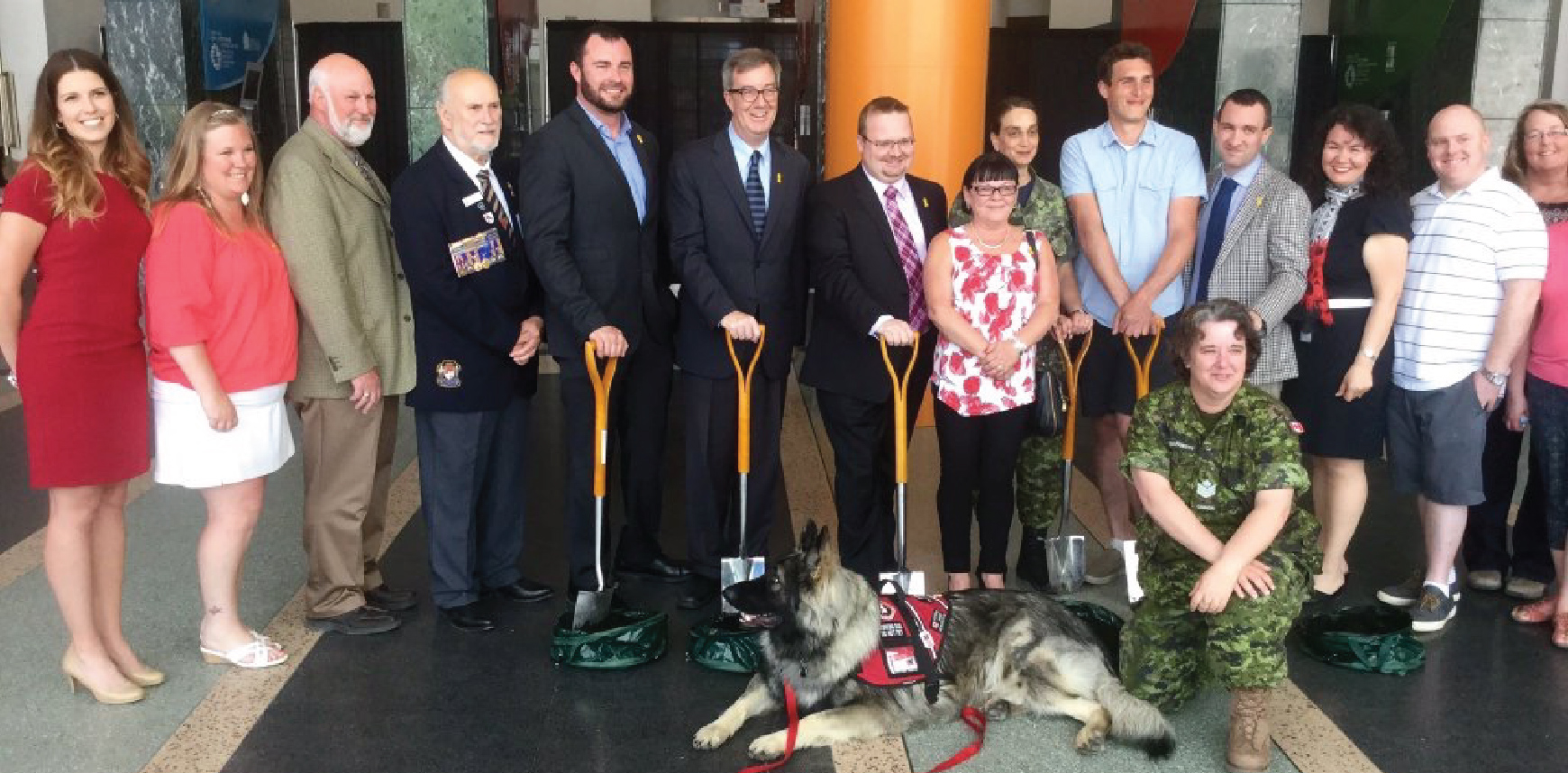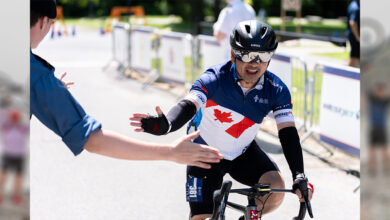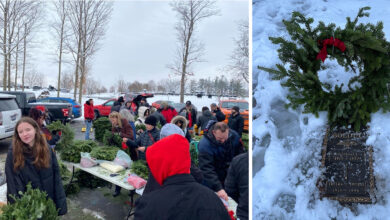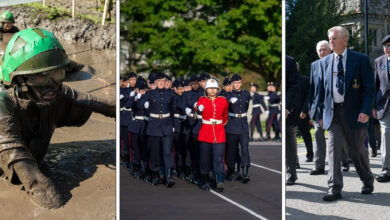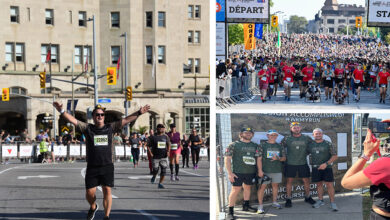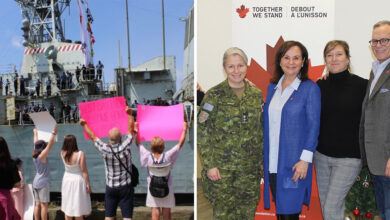Events
Soldiers helping Brothers-In-Arms off the streets
It is estimated that 17,000 veterans each year in Canada spend at least one night of the year homeless. This staggering statistic is partly due to a lack of awareness of resources veterans are entitled to, coupled with their self-reliant nature.
This is where organizations like Soldiers Helping Soldiers (SHS) come in. Neither a fundraising nor advocacy group, SHS is focused on community engagement to identify homeless veterans and connect them with services.
With a team of just under 100 volunteers, made of currently serving soldiers and some veterans, SHS tackles the shelters, soup kitchens and different events of the National Capital Region where they can locate homeless veterans. The group also takes part in walk alongs with the Ottawa police and public relations outreach to create awareness.
“The idea is that we are present and identifiable as military, and that elicits a self-identification response from the homeless veterans. We present ourselves as brothers-in-arms and invite their engagement, essentially,” said Mark Eldridge, spokesperson for SHS and a retired Royal Canadian Navy officer.
That’s why SHS volunteers are always adorned in their military uniforms.
Since 80 per cent of homeless veterans are sergeants and below, only the ranks of warrant officer and chief warrant officer are identified as they are “considered father figures.”
Besides community involvement, SHS also has a peer support program for homeless veterans. They also run the Potato Project, which encourages Canadians to grow 100 lbs. of potatoes, that can be donated to food banks.
“The potatoes growing here all go to the food bank and it doesn’t matter if they go to a veteran, or a recent immigrant or just a regular family, we’re just happy to provide,” said Capt. Vicki Ryan, founder and operation officer of SHS.
Potatoes are one of the highest expenditures for soup kitchens.
Her 26 years in the military and “come with a solution” attitude prompted the establishment of SHS. In Oct. 2012, Ryan was volunteering in downtown Ottawa with Soldier On, when she encountered five homeless veterans within a matter of hours.
“I didn’t really realize that there were homeless veterans in Canada,” said Ryan.
The following week she teamed up with Eldridge and after months of research and putting together a program, SHS had their first boots on the ground in March 2013. Since then they’ve identified just over 380 homeless veterans in Ottawa alone.
“It is a very humbling and gracious experience to go out and do this. We’ve had people who themselves have suffered OSIs (operational stress disorder), and they’ve blossomed. Because it’s one thing to have an injury and think ‘this isn’t me any longer, I’m not the same person, I can’t do the same things.’ But when you come across untreated PTSD (post-traumatic stress disorder) on the street, and you see someone living like that then for certain you’re going to feel maybe my life isn’t so bad and here’s an opportunity for me to help someone else,” observed Ryan.
According to the statistics, eight to 10 per cent of homeless people in Canada have had some sort of military service and SHS estimates suggest that over the next few years an estimated 96,000 veterans will be at risk for homelessness.
These veterans come from all elements of the Canadian Armed Forces (CAF), including Rangers.
Contrary to what many might think, Ryan says that homeless means anyone who does not have a legal residence, including individuals couch surfing or those forced to move back in with their parents.
“Homeless doesn’t mean that you have a street corner and a bench,” noted Ryan.
Alcohol or substance abuse and mental health problems all perpetuate and contribute to homelessness. Even the difficult transition from military to civilian life can cause a veteran to become homeless.
“They have a structured support system inside the military which is now taken away. That expectation for support and comradeship is now gone,” explained Eldridge.
In some cases, veterans are also disconnected from services provided by the CAF and Veterans Affairs Canada.
This nationwide issue is further perpetuated by a lack of studies done on veterans homelessness, says Eldridge.
As they tackle the streets of Ottawa and connect with veterans, SHS has seen its share of success stories. Ryan recalls meeting a veteran a few Junes ago who had a substance abuse issues, a possible OSI and needed a place to live.
Only two months later she received a call one day at work from this individual.
“Since then, he was getting help with alcoholism, he had gotten help with his OSI, he had spoken to VAC, had an apartment, was going back to university and saw his child that he hadn’t seen in seven years.
“And that’s just one story,” said Ryan.
Even though SHS is out to help homeless veterans, the volunteer opportunity has made a difference in the lives of the soldiers taking part.
“They’ve [volunteers] all come back and said it increased morale, it increased productivity. From the homeless veterans point of view, they are simply thrilled that we come out and understand. We speak the same language, we have the same dirt on our boots, in some cases, we’ve been on the same deployments or served with them…that goes a long way to earning trust. In some cases, we have the same injuries, and that goes a long way to winning trust,” commented Ryan.
Though currently only based out of the National Capital Region, SHS hopes to go national in the near future.


